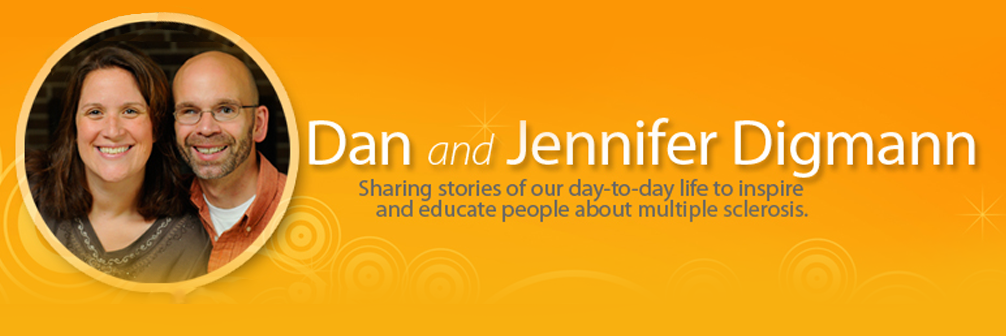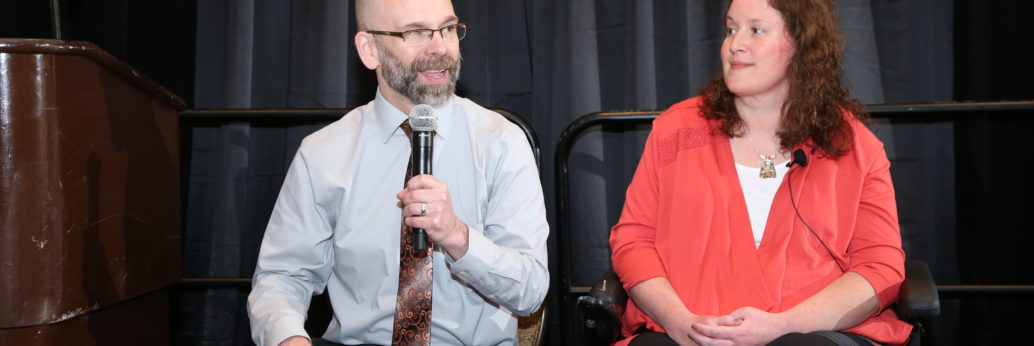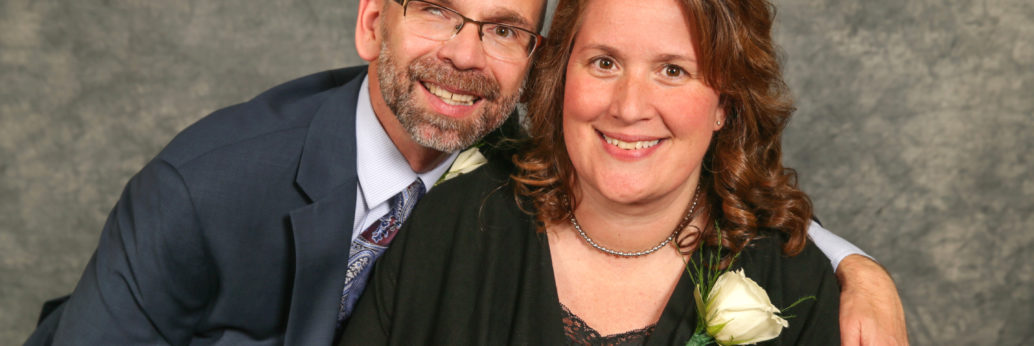I never feel inferior when I overhear friends talking about their shared challenges and triumphs lifting weights at the gym.
Oh, I should be jealous of their work ethic and marvel in their hard-earned masculinity. But I’m not. I truly have nothing but respect for what they accomplish through their squats, curls, presses, deadlifts and everything else they do with their dumbbells, barbells and free weights.
I know they’d be more than happy to have me join them, but weightlifting’s not my thing. You see, I have my own training program.

I take care of my wife, Jennifer, who is living with secondary-progressive multiple sclerosis. She no longer can walk, and it’s up to me to help her transfer in and out of her wheelchair each time she needs to go to the bathroom or get in and out of bed.
And every time I lift Jennifer, I can’t help but think about my weightlifting friends and how, even with all their training, they never would be ready for the muscle-burning realities of my world.
I’m not complaining or looking to start a debate with the people who pump iron, but in my 12 years serving as a primary caregiver, I’ve discovered a dozen reasons why it’s physically and emotionally easier to be a weightlifter than it is to serve as a primary caregiver.
Here’s why:
- Weightlifters can take a day off to let their muscles recover or rest simply because they’re “not feelin’ it.”
- Weights don’t get hurt or cry when they get dropped onto the floor.
- Barbells never instantly turn to jelly in the middle of the lift.
- It’s impossible to hurt a weight’s feelings by shouting obscenities when the lifting is difficult.
- Weightlifters can celebrate when the objects they’re lifting get heavier.
- A spotter always is available to help out at the gym.
- Weightlifters always have the option to try a different sport because the weights truly don’t need them.
- Weights don’t crave stimulating conversation during the workout.
- Never has a weight needed reassurance that everything is going to be OK.
- Weightlifters can target workouts to strengthen specific muscles groups rather than always being required to do a full-body workout.
- A weight isn’t holding onto hope that it will be cured.
- There’s never a 2:30 a.m. call from the gym to come down and do a lightning round of 20 reps.
Again, I tip my hat to the weightlifters I may have offended with this list. But I proudly applaud the caregivers who join Jennifer and me on the front lines of the battles we all face in the daily realities that come with taking care of those we love.
This is the role and these are the people we embrace with every ounce of strength we have.





Tremendous insight into the everyday life of MS & being a caregiver.
Truly inspired by your story.
My best to you & Jen. So honored to be in your circle.
Thanks for your never-ending support, Doug! And we are equally as honored to be in your circle. So about that meeting we’re going to have with you in the greater Ohio area … you available later this year?
looking for support for my myself. dating a gentleman with ms. intimacy is difficult but, an important part of a relationship. he is very quiet about his ms.
Thanks for checking in, Barbara. There are a lot of great support networks out there for loved ones living with MS. Are you OK if we email you directly to hear more about your experiences and perspectives?